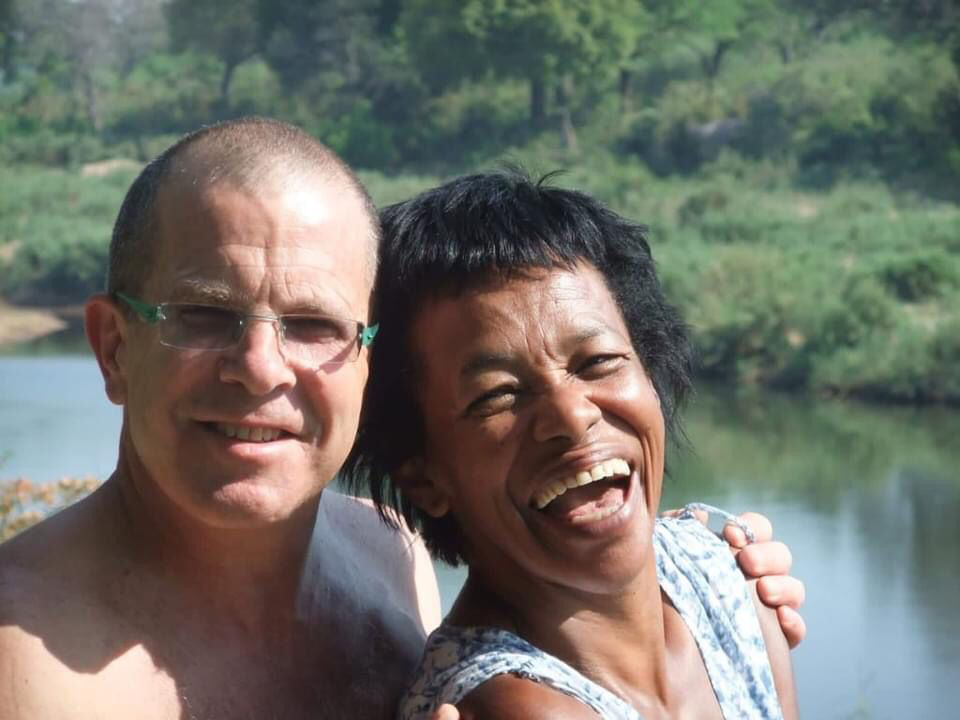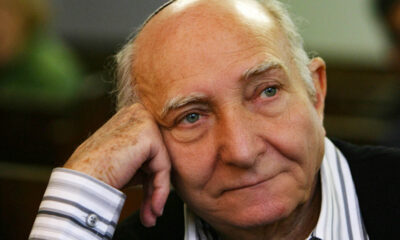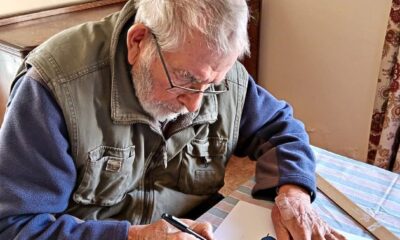
Featured Item

Graeme Bloch: icon of education and activism
In a tragic irony, a man who lived life to the full was condemned to endure an illness that meant he could no longer move or speak. But when Graeme Bloch died on Friday, 9 April 2021, at the age of 65, there was little doubt about the impact he had made on the struggle for a democratic South Africa and in the field of education, his true calling.
Watching their brother deteriorate from someone who hiked, ran marathons, loved to debate, and was an excellent speaker has been difficult for Lance and Shaun Bloch, two of his brothers who spoke to the SA Jewish Report in the wake of his death. Graeme was diagnosed with Progressive Supranuclear Palsy seven years ago.
The seven Bloch siblings have faced much trauma and tragedy in recent years, when their elderly mother, Rosalie Bloch, and her partner, Aubrey Jackson, were murdered in their home in 2018.
“I was actually in Cape Town to wrap up their estate last week when Graeme got pneumonia and was hospitalised,” says Shaun. “Graeme tested COVID-19-negative. Ironically, my brother, Guy, was admitted to the exact same ward at the same time for a minor health issue. It was a blessing in disguise because Guy could check on Graeme in the night.” He says Graeme was “up and down”, but “eventually deteriorated quite quickly and passed away”.
His life was fascinating and full from the start. As one of seven siblings (six boys and a girl), “it was an exciting, vibrant, intellectual household”, says Lance. “My father was a plastic surgeon, my mother a lawyer, so it was a really stimulating environment.” Shaun feels that debate, discussion, education, and recognising that all people are equal were all Jewish values instilled by their parents, and had a profound impact on Graeme, informing his choices from a young age.
“At the same time it was a very active family – we spent almost every weekend on the mountain,” says Lance. “He was a high achiever academically. I was often known as ‘Graeme’s brother’, as he really blazed a trail at school and university.”
Bloch’s passion for education and equal access to it started young. “In Standard 6 [Grade 8] he joined the organisation National Youth Action [NYA], which was the first non-racial schools’ organisation that agitated for fair and equal education for all,” says Lance.
Cape Town academic David Scher also remembers Bloch from their school days at Westerford High School. “There were so many Blochs that they were called ‘Blochlets’,” he joked. “Joining the NYA was really brave, as school principals disapproved of it, and it was unheard of for schoolchildren to be politically involved.”
As a University of Cape Town student, Graeme got involved with the National Union of South African Students and End Conscription Campaign. He was detained and arrested by apartheid security forces in 1976, and was “banned” from 1976 to 1981.
Scher recalls, “At the age of 20, he [Graeme] was beaten up in detention by the infamous [Warrant Officer Hernus JP] Spyker van Wyk, who brought his children along to watch the interrogation.”
Says Lance, “Being detained and on the run scarred him a bit. It made him more nervous, but also more determined. He was extremely brave.
“When he was banned for five years, he wasn’t supposed to be in touch with more than one person at a time, but he used to break that law,” Lance says. “He would come to family meals, and the Security Branch would be sitting outside the house. Sometimes, my mother would go out and give them coffee!”
Scher reconnected with Graeme when they both worked in the history department at the University of the Western Cape (UWC) around 1986. “He was part of the temporary staff. He couldn’t get a permanent position because he was so often on the run. I remember once I was staying with my in-laws. One evening, there was a knock on the door and there stood a stranger. I didn’t recognise that it was Graeme in disguise! He had come to collect exam scripts to mark.
“As a lecturer, he couldn’t be seen on campus in case he was arrested,” says Scher. “He would say that it was a ‘soulless experience’ not to be able to have a permanent academic job – he felt it keenly. Such was his sacrifice. And the students at UWC really adored him. He came to the university straight after he was released from detention, and they gave him a massive reception as he addressed them.”
“Education was really his passion,” says Lance. “He inspired a whole generation of youth.”
Former Finance Minister Trevor Manuel elaborates on this. “In the mid-1980s, Graeme ran education programmes for children who have since gone on to do amazing things in life. He gave them vision, determination, and hope. Many of them attribute where they are today to Graeme ‘unlocking’ their potential. That was Graeme – education wasn’t just academic, it was a deeply felt and passionate thing.”
Doron Isaacs, a founder of Equal Education (EE), remembers how “Graeme was an EE board member from 2010 for two and half years through the organisation’s most intense period of campaigning. What I most admired in Graeme was how seriously he took the school-going activists within EE, how he listened to them and engaged them, almost treating them as his leaders. He retained an instinctive radicalism acquired in his youth, but what he most admired in young activists was conscientiousness, discipline, hunger for knowledge, and patient organising. In spite of his close ties to the ANC [African National Congress], he never wavered in backing EE to confront the government and its leaders.”
Manuel continues, “Graeme was willing to do even the most menial tasks. When we launched the UDF [United Democratic Front] in August 1983, he landed up making soup. I don’t think his soup would have made MasterChef, but he did it because someone needed to do it.”
It was in the UDF that Graeme met his soulmate and future wife, Cheryl Carolus, who would later become the ANC’s deputy secretary general. Many describe how they complemented each other – Graeme was more subdued while Cheryl is more extroverted. Together, they were a force of nature.
“Another thing I remember is that all the mothers of other activists adored him,” says Manuel. “All of them, without exception, had the most unbelievable affection for Graeme. And being invited by so many families for supper made him the envy of his friends. Many of his networks were built like that.
“Whenever I visited his house, the most common feature in all their photos was laughter. He was a radiant, happy individual. The illness took away his ability to speak, but even as recently as a month ago, he would laugh at jokes. Notwithstanding the fact that he couldn’t talk, his joie de vivre wasn’t dimmed.”
Former Constitutional Court Judge Albie Sachs remembers how Bloch played a key role in welcoming him back to Cape Town after 24 years in exile in May 1990. “My first wish was to climb Table Mountain. I got the message out that after I landed at the airport, I wanted to go to my mom and have tea with her, then put on my takkies and climb my beloved mountain.
“But I needed someone to escort me. My arm had been blown off, and I wasn’t sure I could make it. I was told that comrade Graeme Bloch was the ANC’s ‘exercise person’, and had put together a team of comrades to join us,” Sachs says. “He took me up Constantia Nek, we walked past the reservoirs … I still remember the exact route after two decades … down Kasteel’s Poort, along the pipe track, and finally arriving at Kloof Nek corner. I felt triumphant. I wasn’t sure I could even do it, but he made it happen. You couldn’t have found a more gracious, warm, and generous person. He loved the mountain, and he loved freedom.”










